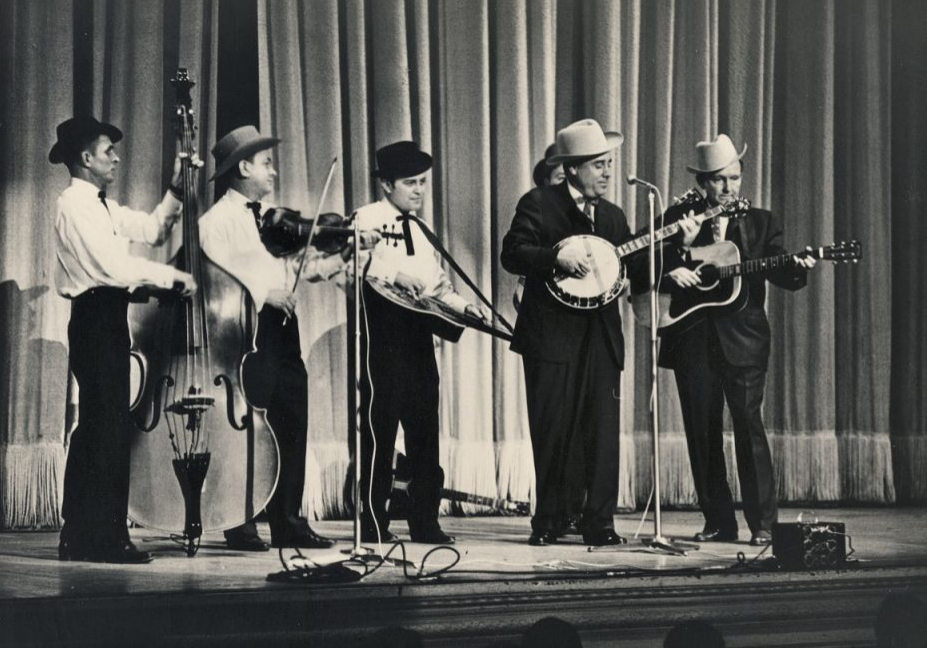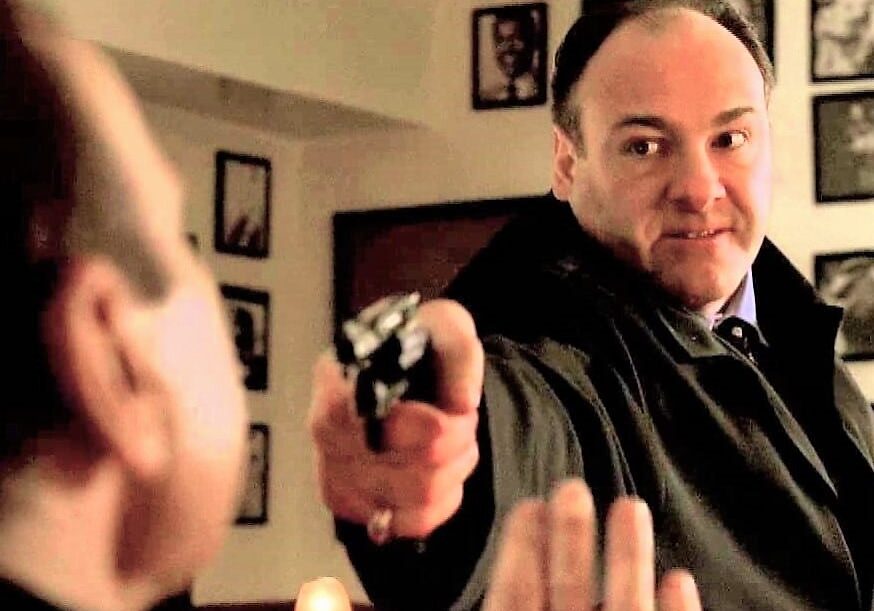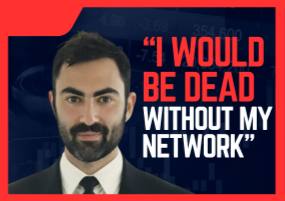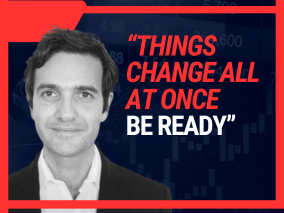If you’re like me, you’ve been put off from digging deeper into DeFi by the terrible signal-to-noise ratio of anything crypto-related on the interwebs. That’s why I found this DeFi primer (using Maker DAO as a specific example) by ET contributor and banking analyst Marc Rubinstein to be so fantastic.

Eric Markowitz shared this Nassim Taleb quote in The Nightcrawler last weekend and it’s rattling around in my head:
The more rational we become, the more blind we are to our own irrationality.
Nassim Taleb
You can reduce, simplify, and get everything fitting into your head all tidy-like.
All the numbers can add up. The i’s can be dotted and the t’s can look to be crossed.
Maybe it’s damn near perfect after a while.
And all it does is open you up to a bigger disaster.
There’s comfort in living with some mess.
I pretty much expect I am always in a bit of a mess. I don’t like to be surprised by it. The chaos is just there and that’s fine.
For example – I thought I had a whole week of posts scheduled out on Saturday this week.
Read more at cultishcreative.com
Engagement’s a trap. Or maybe it’s a myth. All I know is – it’s real, but it’s also not reality, and if you’re confused, you’re onto a truth that will set you (and whatever you’re creating) free.
Mike Cessario is the CEO/Founder of Liquid Death and, no matter how dumb you feel like the company is (or how amused you are by a CEO who wears Deicide shirts), he knows a thing or two about reaching an audience and inspiring action.
If you’re obsessed with comments, likes, and engagement rates, I need you to see this:
90% of people on social are passive observers who do not engage by clicking like buttons or posting comments. They treat social media the same way they treat their television: they sit back and watch the circus.
Mike Cessario, CEO/Founder at Liquid Death
Marketing extraordinaire Jack Appleby put that idea in my inbox this week (he was probably wearing a Taking Back Sunday shirt). It came on the same day I happened to be listening to Bob Pittman (MTV, Nickelodeon, basically the creator of my entire childhood education, and current CEO of iHeartMedia) get interviewed by Rick Rubin (who… same pitch). Bob was talking about the Spotify vs. radio stats and – just read this too:
Ad supported Spotify or ad supported Pandora reach about 20% of America. We reach 90%.
Bob Pittman, iHeartMedia CEO
More people listen to the radio today than did 10 years ago or 20 years ago.
Read more at cultishcreative.com
I am impossibly betting that sometime in 2002 I saw Atmosphere on the God Loves Ugly tour in the 300ish person room below Pearl Street in Northampton, MA. If you know otherwise, or if you gave me a ride there, or whatever, feel free to clarify. The internet has failed me in this regard.
And, more specifically, I saw Atmosphere, a bunch of Rhymesayers artists, and Mr. Dibbs.
DJs have always been fascinating to me. Mr. Dibbs included. The curation and choices and room-reading (and occasionally lack of room reading) fascinates me.
It was probably all the years in high school I spent playing for real money in cover bands in bars, relative to the time I spent playing for minimal door money in original bands in indie/all-ages clubs.
Getting a room to appreciate an original is really hard. It’s your art and it’s being judged. LIVE.
Now, copying an oldie but a goodie in a cover band, while easier and you have better odds of achieving audience approval, you still need to do something to either make it your own or strive for the level of mastery the original artist had.
I won’t turn this into a rant on my hatred for lazy cover bands. They exist.
But, I will take this back to my admiration for DJs who don’t have to play cover songs because they can play the source material. The best DJs can even make something special out of it. Originality in DJ routines is magic to me (and massively undercelebrated).
Read more at cultishcreative.com
Name Your Critic
The most paralyzing creative fear isn’t real criticism – it’s the imaginary collective judgment we carry in our heads. James Clear’s insight cuts through the fog: when you worry about “what other people will think,” you’re usually not worried about any specific person’s opinion. The moment you name the actual critic, you often realize you don’t respect their judgment anyway. This simple practice of naming your critic dissolves most creative paralysis because cruel critics usually reveal themselves to be people whose opinions don’t actually matter to your work.
The Raw File Approach to Networking: Morgan Ranstrom Returns TO JUST PRESS RECORD
We have a compression problem. AI and algorithms compress human experience the same way Spotify compresses audio files – technically functional but missing crucial data. Morgan Ranstrom’s insight about treating genuine conversation as “raw file” networking versus algorithmic compression explains why so many professional connections feel hollow. Real relationships preserve all the data: pauses, tangents, cross-industry pollination, and moments where ideas actually compound in real-time. Your Personal Archive matters because you’re building an uncompressed library of human experiences while everyone else accepts compressed files.
Grow Your Network: Morgan Ranstrom Is A Purposefully Thoughtful Advisor and Musician
Everything compounds – for you or against you. Morgan’s framework for intentional living centers on recognizing that neutrality doesn’t exist in personal development. His decision to trade Friday nights for Saturday mornings captures the profound challenge of right living: making choices today that your future self will thank you for, even when present benefits aren’t visible. The Napoleon tree story illuminates legacy thinking – planting trees you’ll never see requires ego reduction but creates the most lasting impact because it frees you from needing immediate validation.
Grow Your Network: Rupert Mitchell Is A Market Translator Who Turns Chaos Into Clarity
The greatest competitive advantage isn’t being in the thick of every battle, it’s having perspective to see patterns others miss. Rupert Mitchell’s transition from investment banking to independent research gave him something invaluable: distance that allows pattern recognition impossible under execution pressure. His celebration of generalism – from feeder cattle to SaaS companies to Japanese rice harvesters – isn’t scattered thinking but strategic diversity. Fresh perspectives reveal insights that specialists, trapped in expertise, completely miss. The transferable skills that matter aren’t technical ones that become obsolete, but human skills that compound across decades.
Read more at cultishcreative.com
Do you know Morgan Ranstrom? He’s a wealth advisor at Trailhead Planners, author, musician with Stone Arch Rivals, and someone who thinks deeply about compounding in all its forms – from right living to generational legacy.
If not, allow me to introduce you. Morgan combines financial planning expertise with a musician’s creative soul, and he’s written thoughtfully about the intersection of money, meaning, and multi-generational impact. I wanted to connect with them because they embody something I value deeply: the rare ability to see how everything compounds – relationships, habits, creativity, and wisdom – over decades.
Our conversation is LIVE now on the Just Press Record YouTube channel (and this Cultish Creative Playlist). Listen and you’ll hear us dive deep into time as a filter, the power of being a good ancestor, and why Morgan traded his Friday nights for Saturday mornings.
Read more at cultishcreative.com

Eric Markowitz shared this Nassim Taleb quote in The Nightcrawler last weekend and it’s rattling around in my head:
The more rational we become, the more blind we are to our own irrationality.
Nassim Taleb
You can reduce, simplify, and get everything fitting into your head all tidy-like.
All the numbers can add up. The i’s can be dotted and the t’s can look to be crossed.
Maybe it’s damn near perfect after a while.
And all it does is open you up to a bigger disaster.
There’s comfort in living with some mess.
I pretty much expect I am always in a bit of a mess. I don’t like to be surprised by it. The chaos is just there and that’s fine.
For example – I thought I had a whole week of posts scheduled out on Saturday this week.
Read more at cultishcreative.com
Engagement’s a trap. Or maybe it’s a myth. All I know is – it’s real, but it’s also not reality, and if you’re confused, you’re onto a truth that will set you (and whatever you’re creating) free.
Mike Cessario is the CEO/Founder of Liquid Death and, no matter how dumb you feel like the company is (or how amused you are by a CEO who wears Deicide shirts), he knows a thing or two about reaching an audience and inspiring action.
If you’re obsessed with comments, likes, and engagement rates, I need you to see this:
90% of people on social are passive observers who do not engage by clicking like buttons or posting comments. They treat social media the same way they treat their television: they sit back and watch the circus.
Mike Cessario, CEO/Founder at Liquid Death
Marketing extraordinaire Jack Appleby put that idea in my inbox this week (he was probably wearing a Taking Back Sunday shirt). It came on the same day I happened to be listening to Bob Pittman (MTV, Nickelodeon, basically the creator of my entire childhood education, and current CEO of iHeartMedia) get interviewed by Rick Rubin (who… same pitch). Bob was talking about the Spotify vs. radio stats and – just read this too:
Ad supported Spotify or ad supported Pandora reach about 20% of America. We reach 90%.
Bob Pittman, iHeartMedia CEO
More people listen to the radio today than did 10 years ago or 20 years ago.
Read more at cultishcreative.com
Modeling Common Knowledge by analyzing Missionary statements and their reverberations works. Except when it doesn’t.
What do you get when you give a Raccoon billions of dollars AND invisibility from regulators? Collusion and insider trading.
Most of us are under the impression that a protracted conflict within China will increase national unity. Not this time.
Recent Notes
The Intentional Investor #22: Eric Markowitz
In this engaging episode of The Intentional Investor, host Matt Ziegler interviews Eric Markowitz, exploring his fascinating journey from investigative journalism to investment research. The conversation weaves through Eric’s formative years, professional evolution, and life-changing experiences, offering valuable insights into the intersection of media, investing, and personal growth.
DeepFreak
In seven days, a narrative about AI tech technology became a narrative about what it meant for chip manufacturers, which because a narrative about national security.
The Intentional Investor #21: Corey Hoffstein
Join Matt Zeigler as he sits down with Corey Hoffstein, a successful entrepreneur and financial innovator, for a candid conversation about his remarkable journey from video game programmer to financial pioneer. In this wide-ranging discussion, Corey shares the story of his career trajectory – from teaching himself programming at age 12 to founding Newfound Research and developing groundbreaking investment strategies.
A Death in the Family
Today I know that the meaning of the American Presidency is dead, and like the loss of a beloved family matriarch it’s a loss I’ll never get over. I know that I have to accept it, but I’ll never get over it. And right now I’m still pretty angry at ALL of them.
The Intentional Investor #20: Dr. Preston Cherry
Join host Matt Zeigler as he sits down with Dr. Preston Cherry, founder and CEO of Concurrent Wealth Management and author of “Wealth in the Key of Life.” From his father’s treasured vinyl collection to transformative “fog years,” Dr. Cherry shares his journey of discovering the deep connections between music, money, and meaning.
The Four Horsemen of the Great Ravine, Part 1
Every so often, things fall apart.
In the words of those who lived it, here are the vibes and the semantic signatures of the twentieth century’s most devastating social collapses.
From the meaning in their words, wisdom for our future emerges.
Data Engineer I
We’re looking for a Data Engineer to help build and maintain the data pipelines that power our AI-and NLP-driven narrative analysis platform. You’ll work with everything from structured financial data to unstructured news and social media content.
Business Analyst
Second Foundation Partners is looking for a Business Analyst to help us build tools that make sense of the world’s narratives using generative AI.
Digital Content Writer I
Second Foundation Partners needs a talented, passionate writer intrigued by the opportunity to bring data to life through engaging daily content about media, markets, and sports.
Chapter 6: The Possibility Engine
Humans evolved to acquire symbols as quickly as possible.
Language and storytelling evolved to be acquirable as easily as possible.
That’s why our tales spin us.
Chapter 5: The Axe that Never Was
Our brains evolved to tell stories before they evolved to speak.
This has fundamental implications for our susceptibility to communication in the networked age.
Chapter 4: Out of Eden
If we care about the influence of social networks on our minds, why are we talking about bipedalism and the 8 million year cycle of co-evolution it kicked off?
Because it defined how our young were parented, how we taught them, and what they were exposed to. Because it changed how our symbolic brains evolved.
Intentional Investor #19: Yuri Khodjamirian
Join host Matt Zeigler as he interviews Yuri Khodjamirian, Chief Investment Officer at Tema ETFs, in this captivating episode of The Intentional Investor. From his early years during the collapse of the Soviet Union to building innovative investment products today, Yuri shares his remarkable journey through the world of finance and entrepreneurship.
Chapter 3: Caliban’s Garden
Man’s road to becoming a storyteller began with a single step.
That step kicked off millions of years of co-evolution of the human brain, society, language – and our relationship with story.
Chapter 2: What is Story?
There are a lot of ways to define a “story.”
But to understand how story interacts with human consciousness requires us to be more specific.
Intentional Investor #18: Jason Buck
In this fascinating conversation, Matt Zeigler sits down with Jason Buck, co-founder of Mutiny Fund, to explore the unexpected intersections between entrepreneurship, risk management, and personal development. From selling mixtapes in rural Michigan to developing real estate in Charleston and ultimately founding an innovative investment firm, Jason’s journey challenges conventional wisdom about success and risk-taking.
Chapter 1: Overhearing Ourselves
Shakespeare invented the human by inventing a device which spoke the language of consciousness:
Story.
Introduction: David Bowie’s Alien
David Bowie was right.
Social networks aren’t a tool. They are an alien force that transforms human consciousness.
Making Sense of Markets in a Post Election World | Grant Williams and Ben Hunt
Matt Zeigler is joined by Ben Hunt and Grant Williams for a candid discussion of the 2024 post-election landscape and its implications for markets. The guests explore how trust, or lack thereof, shapes both political and market narratives, examining the transformation of capital markets into what they describe as a “political utility” where “number go up” has become the prevailing faith.
I Think Representative Democracy is a Good Idea and We Should Give It a Try
I am 60 years old.
I am a (very) patriotic American.
I have never felt represented by any elected official.
Never.














































